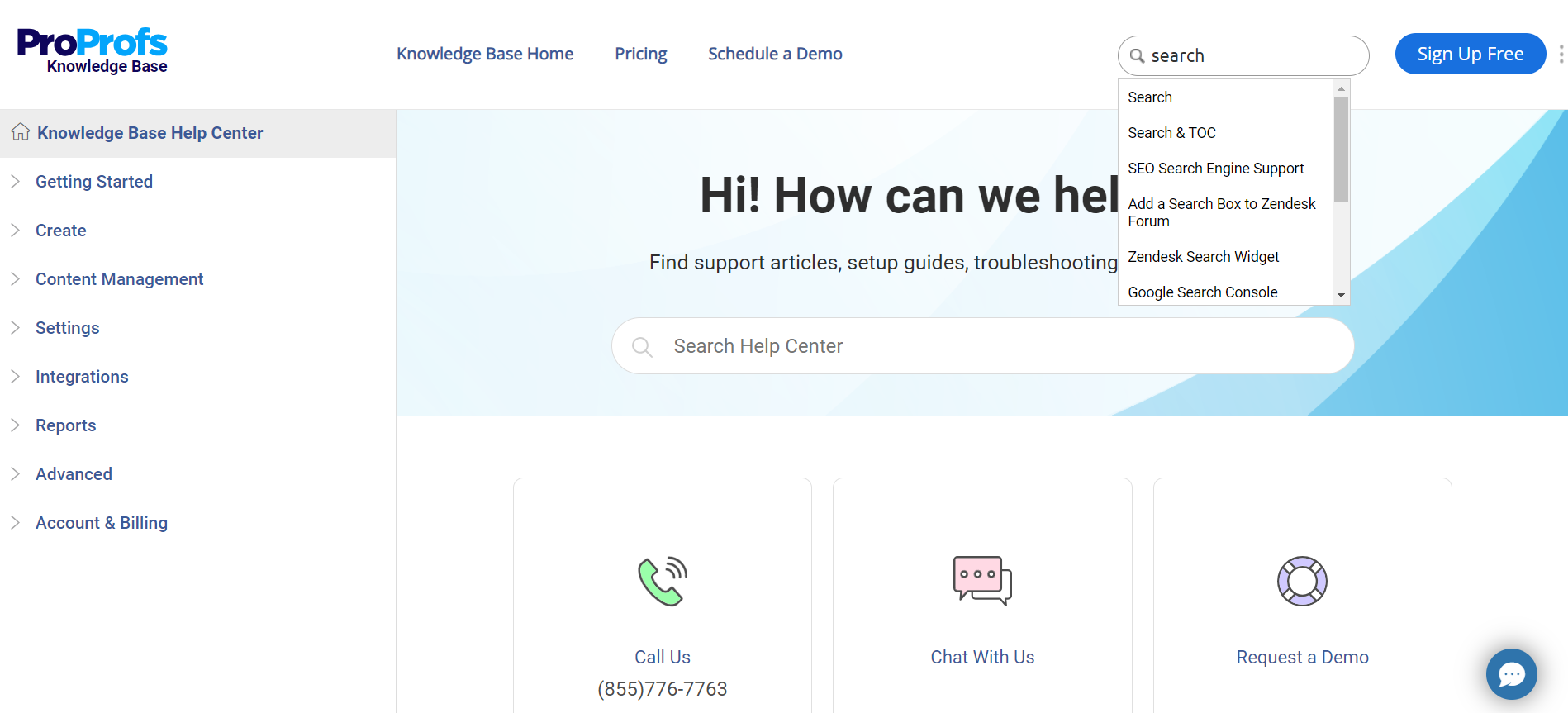Did you know that lawyers spend only 2.3 hours (29% of an 8-hour workday) on billable tasks?
This happens when legal expertise is scattered across countless emails, documents, and individual lawyers’ minds. Efficient legal knowledge management (LKM) can help tackle this.
LKM helps capture, organize, store, and share legal knowledge to improve efficiency, consistency, and decision-making within a law firm or legal department. It also helps preserve institutional knowledge, ensuring continuity even when experienced lawyers leave the firm.
In this blog, we’ll discuss the importance of legal knowledge management and its essential components and explore the best legal knowledge management software.
What Is Legal Knowledge Management?
Legal knowledge management (LKM) is the process of capturing, organizing, storing, and sharing legal knowledge and information within a law firm or legal department.
It involves creating a system that allows legal professionals to easily access and leverage the organization’s collective wisdom and experience. This includes precedents, legal research, case strategies, best practices, and other relevant information.
For example, imagine a law firm specializing in intellectual property law. They have many past cases, legal research documents, and expert opinions on IP matters. By implementing an LKM system, they can create a centralized repository where all this information is categorized, tagged, and made easily searchable.
What Are the Components of Legal Knowledge Management?
To manage legal knowledge well, you need a few key components working together. Let’s look at these three important parts:
People: The Driving Force Behind Knowledge
It’s not just about having the right legal knowledge management tools; it’s about empowering the right individuals within your organization to champion and drive knowledge initiatives.
This involves identifying key stakeholders, like department managers and senior lawyers, and assigning them clear roles and responsibilities in the knowledge management process.
These individuals should be passionate about knowledge sharing and deeply understand the organization’s legal expertise and information needs. Their involvement ensures that the knowledge management strategy is well-aligned with the firm’s goals and that knowledge assets are captured, organized, and shared effectively.
Process: Streamlining the Flow of Legal Knowledge
A well-defined legal knowledge management process ensures that legal knowledge flows seamlessly throughout the organization. This involves establishing clear procedures for capturing, organizing, storing, sharing, and utilizing legal information.
It starts by motivating lawyers and staff to contribute their expertise and capture this knowledge within a centralized system. The next step is organizing this information in an easily digestible way and accessible to all users. This might involve categorizing information by practice area, creating templates for standard legal documents, or implementing a robust search functionality.
Finally, the process should include mechanisms for evaluating the knowledge management system’s effectiveness, using metrics to track usage, identifying areas for improvement, and ensuring that the system is meeting users’ needs.
Culture: Embedding Knowledge Sharing in the Firm’s DNA
A successful legal knowledge management process needs a supportive culture that values and encourages knowledge sharing. This means fostering an environment where lawyers and staff feel comfortable sharing their expertise, asking questions, and collaborating.
Senior management plays a crucial role in modeling these behaviors and setting the tone for a knowledge-sharing culture. This can involve recognizing and rewarding knowledge contributions, promoting open communication, and providing opportunities for knowledge exchange.
When knowledge sharing becomes ingrained in the firm’s culture, it creates a powerful engine for innovation, efficiency, and client service.
Why Does Knowledge Management Matter for Law Firms?
Knowledge management for legal professionals is all about enhancing operational efficiency, ensuring legal accuracy, and improving client service. Here are some of its primary benefits:
Enhances Access to Precedents & Resources
Legal professionals depend on access to accurate precedents, case laws, contracts, and internal documents. KM systems centralize this wealth of knowledge, making it searchable and easy to retrieve. This reduces the time spent hunting for information and allows lawyers to focus on crafting solid arguments or strategies.
For example, a robust KM system might allow attorneys to search past cases by keywords, dates, or legal principles, ensuring nothing is overlooked.
Improves Collaboration
Collaboration is essential in law firms, especially for complicated cases requiring multiple areas of expertise. KM platforms provide shared access to legal documents, briefs, and real-time updates. This encourages a knowledge-sharing culture, ensuring all team members work with the latest information.
For example, a partner drafting a motion can instantly access notes from junior associates or contributions from subject-matter experts, streamlining workflows and improving the quality of work.
Increases Client Satisfaction
Legal knowledge management enables legal firms to provide faster, more reliable client service. By streamlining access to information, lawyers can respond to client queries promptly and precisely.
For example, an attorney handling multiple cases can rely on a KM system to retrieve details about client-specific legal nuances or prior correspondences, ensuring tailored advice. This builds client trust and increases the likelihood of repeat business and referrals.
Maintains Compliance & Risk Management
Staying updated on regulatory changes is critical in the legal industry. Legal knowledge management systems can store and alert lawyers to recent amendments, compliance requirements, or case law developments, helping firms avoid legal risks.
For example, a KM system can ensure that attorneys always operate with the most current and valid information by flagging outdated legal statutes referenced in internal documentation.
Supports Training & Knowledge Transfer
Law firms often face challenges when onboarding new hires or transferring knowledge from retiring partners. Legal knowledge management captures and preserves institutional expertise, creating a repository of resources for training and continuous learning.
Junior lawyers, for example, can quickly learn by accessing templates, past case strategies, and annotated precedents, ensuring continuity and quality in client service.
What Are Some Knowledge Management Barriers in Law Firms?
While LKM is vital for law firms, several challenges can hinder its implementation. Here are some of the major ones:
Organizational Culture & Biases
Most law firms have hierarchical structures and a culture prioritizing individual expertise over collaboration. Partners and senior lawyers may hesitate to share knowledge, fearing a loss of competitive edge within the firm.
This reluctance leads to information silos, limiting the effectiveness of LKM. To overcome this, firms must encourage a collaborative culture by incentivizing knowledge-sharing and building systems prioritizing collective expertise over individual contribution.
Accurate Information Capture
Gathering knowledge in a legal environment requires precision, which can lead to significant consequences. However, the fast-paced nature of legal work often leaves little time for lawyers to document case details, strategies, or insights thoroughly.
Without consistent and accurate documentation, knowledge gaps emerge. Law firms can address this by automating knowledge capture through tools that sync with workflows or employing dedicated LKM professionals to ensure data accuracy.
Legal Knowledge Management Costs
Implementing and maintaining a robust LKM system requires significant technology, training, and ongoing investment in support. Smaller organizations may struggle to justify these costs, while larger firms may face resistance due to budget constraints.
To address this, companies should evaluate scalable legal knowledge management solutions and demonstrate ROI by highlighting time saved, reduced redundancies, and improved client outcomes.
Constantly Evolving Legal Landscape
Legal regulations, precedents, and statutes change constantly, making it challenging to keep LKM systems up-to-date.
Outdated or inaccurate information can result to costly errors. Law firms must prioritize real-time updates and utilize legal knowledge management software that provide alerts and automated compliance checks.
Technology Adoption Resistance
Legal professionals who take a conventional approach may resist adopting new LKM technologies, which can delay implementation and limit its effectiveness.
To tackle this, firms should provide hands-on training, highlight the benefits of KM tools, and showcase successful case studies within the firm.
What Tools Can Help You with Legal Knowledge Management?
Knowledge management tools provide the infrastructure and functionalities to effectively capture, store, organize, and share knowledge within an organization. Here are those tools:
1. Knowledge Base

A knowledge base is a centralized hub for your team’s collective knowledge, organizing crucial information into easily accessible categories.
Think of it as a user-friendly content management system with a powerful search function, empowering users to find the information they need quickly.
Tools like ProProfs Knowledge Base offer an intuitive interface and collaborative features, allowing teams to easily create, manage, and share their knowledge base content.
Create a Knowledge Base Get a Demo
2. Document Management Systems (DMS)
A robust DMS is crucial for securely organizing, storing, and retrieving documents. It allows users to categorize and control their version efficiently and access documents (e.g., contracts and case files).
With these tools, a law firm can quickly access past case files or contracts without sifting through physical records, ensuring consistency and saving time.
3. Intranet
An intranet serves as a digital hub for internal collaboration and information sharing. It enables teams to post updates, share files, and host wikis or discussion boards.
Platforms like Microsoft SharePoint or Slack facilitate seamless communication and ensure employee alignment. Firms can use their intranets to disseminate updates on regulatory changes or organize training materials.
4. Research Directories
Research directories are specialized databases or tools that provide access to case laws, statutes, and other legal resources. Using this, lawyers can quickly perform keyword searches to identify relevant precedents for case strategy.
5. Social Networking Tools
Internal social networks or communication platforms can foster knowledge-sharing and collaboration among employees. They provide a space for discussions, Q&A forums, and sharing of best practices.
6. E-Learning Platforms
These platforms provide online training modules, courses, and assessments to facilitate employee learning and development. They can be used to deliver onboarding training, compliance training, or professional development programs.
7. Artificial Intelligence (AI) Tools
AI-powered tools can enhance knowledge management by automating tasks, providing intelligent search capabilities, and personalizing content recommendations.
What Are the Steps to Lead Knowledge Management in a Law Firm?
Implementing Knowledge Management (KM) in a law firm requires a systematic and strategic approach. Here are some essential steps:
Assess Knowledge Needs & Gaps
Before designing an LKM strategy, do a thorough audit to identify the company’s knowledge, what is missing, and where inefficiencies exist.
This involves interviewing staff, analyzing workflows, and pinpointing bottlenecks in accessing or sharing knowledge. For instance, does the firm lack a central repository for contracts or case precedents?
Set Up a Knowledge Leadership Team
Form a dedicated KM team that includes IT experts, senior attorneys, paralegals, and knowledge managers.
This team will oversee the strategy, ensure alignment with the firm’s goals, and manage day-to-day KM operations. Clear roles and responsibilities are critical for accountability and success.
Choose the Right Tools & Systems
Identify and implement solutions tailored to the firm’s needs, such as Document Management Systems, Knowledge Bases, or AI-driven tools for contract analysis.
Consider scalability, ease of use, and integration with existing systems. For example, a litigation firm might prioritize research tools like Westlaw or LexisNexis.
Define Success Metrics & KPIs
Establish measurable goals to track the effectiveness of KM initiatives. Metrics include reduced time spent on document retrieval, increased reuse of templates, or enhanced client satisfaction scores. Regularly review these KPIs to assess progress and areas for improvement.
Ensure Continuous Information Updates
A knowledge system is only as good as its content. Develop processes to update legal precedents, contract templates, and internal guides regularly.
Assign responsibility for content maintenance to specific team members and use automated tools to flag outdated materials.
Encourage a Knowledge-Sharing Culture
Encourage collaboration and knowledge sharing by rewarding contributions, hosting training sessions, and integrating KM into daily workflows.
When employees see the value of KM in their work, they are more likely to engage with and maintain the system.
Provide Training & Support
Equip staff with the skills to use KM tools effectively. Conduct regular workshops and create easy-to-follow guides.
Ensure a helpdesk or support team assists employees as they adapt to the new system.
Monitor, Refine & Scale
Regularly evaluate the KM system’s performance and gather feedback from employees. Use insights to refine processes, expand capabilities, or adopt new technologies.
For instance, consider scaling up to include more advanced AI or machine learning tools as the firm grows.
Improve Collaboration & Client Satisfaction with Legal Knowledge Management
By effectively capturing, sharing, and utilizing legal knowledge, firms can empower their lawyers, streamline operations, and deliver exceptional client service.
Successful LKM requires a holistic approach encompassing people, processes, and culture. Identify knowledge champions, establish clear workflows, and foster a knowledge-sharing environment where collaboration and learning thrive.
ProProfs Knowledge Base can help with all this. Its user-friendly interface, AI-powered search, custom branding, and seamless integrations make it ideal for building a knowledge-driven legal practice. You can explore the tool more or request a demo below.
FREE. All Features. FOREVER!
Try our Forever FREE account with all premium features!







